75 lines
3.0 KiB
Markdown
75 lines
3.0 KiB
Markdown
# Multiple Days Up / Down
|
|
|
|
This strategy was taken from chapter 6 of [*High Probability ETF Trading*](https://moshferatu.dev/moshferatu/high-probability-etf-trading) (2009) by Larry Connors.
|
|
|
|
## Rules
|
|
|
|
**Multiple Days Down** (Long)
|
|
|
|
1. The ETF (e.g., SPY) is above its 200-day moving average.
|
|
2. The close is below its 5-day moving average on entry day.
|
|
3. The close must have been lower than the day before for 4 out of the previous 5 days.
|
|
4. If the above conditions are met, enter a long trade.
|
|
5. **(Optional Aggressive Version)** Enter a second long if price closes below the initial entry price at any point during the trade.
|
|
6. Exit the trade when the close is above the 5-day moving average.
|
|
|
|
**Multiple Days Up** (Short)
|
|
|
|
1. The ETF (e.g., SPY) is below its 200-day moving average.
|
|
2. The close is above its 5-day moving average on entry day.
|
|
3. The close must have been higher than the day before for 4 out of the previous 5 days.
|
|
4. If the above conditions are met, enter a short trade.
|
|
5. **(Optional Aggressive Version)** Enter a second short if price closes above the initial entry price at any point during the trade.
|
|
6. Exit the trade when the close is below the 5-day moving average.
|
|
|
|
## Parameters
|
|
|
|
**Long-Term Trend Period**: The period of the long-term trend as measured using a simple moving average. (Default: 200)
|
|
|
|
**Short-Term Trend Period**: The period of the short-term trend as measured using a simple moving average. (Default: 5)
|
|
|
|
**Minimum Days Up / Down**: The minimum number of days that the close must be higher / lower to trade. (Default: 4)
|
|
|
|
**Days to Consider**: The total number of days to consider when looking for higher / lower closes. (Default: 5)
|
|
|
|
**Enable Long Trades**: Whether to enable taking long trades. (Default: true)
|
|
|
|
**Enable Short Trades**: Whether to enable taking short trades. (Default: true)
|
|
|
|
**Enable Aggressive Entries**: Whether to enable taking aggressive second entries when conditions are met. (Default: true)
|
|
|
|
## Backtest Results
|
|
|
|
### SPY
|
|
|
|
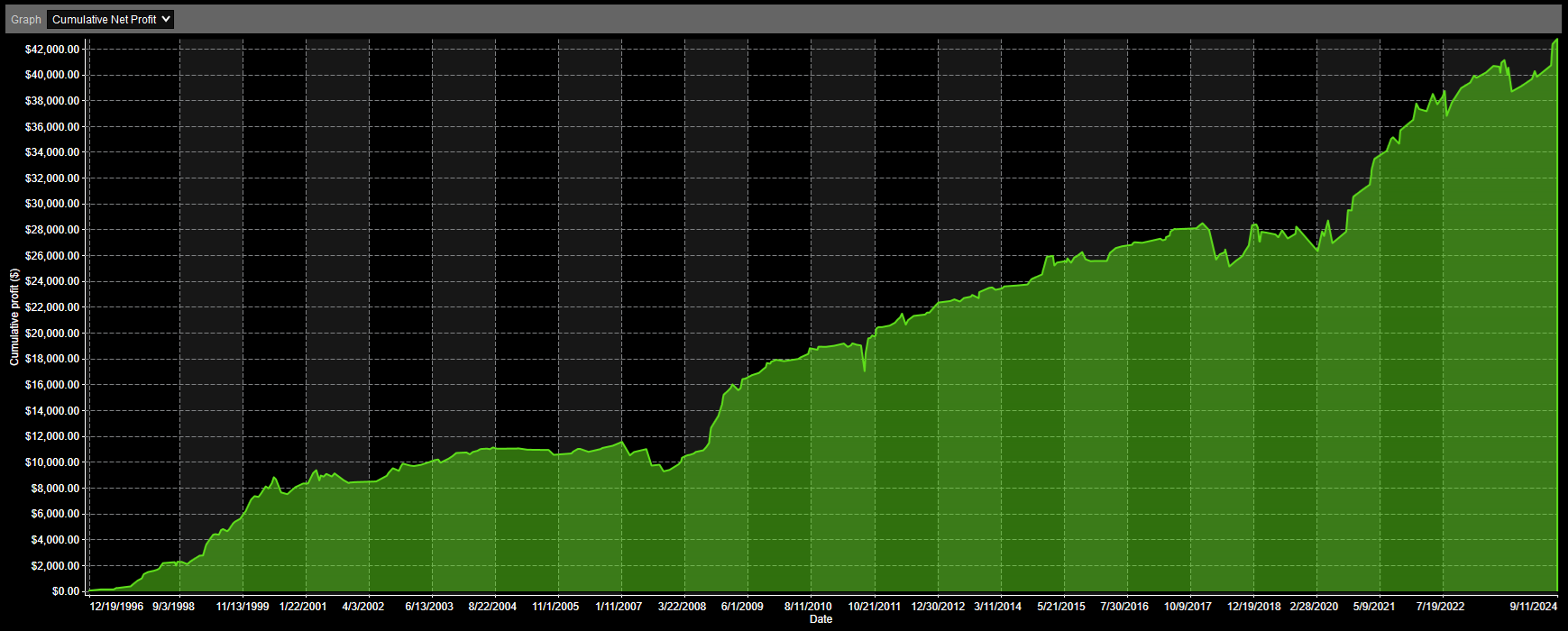
|
|
|
|
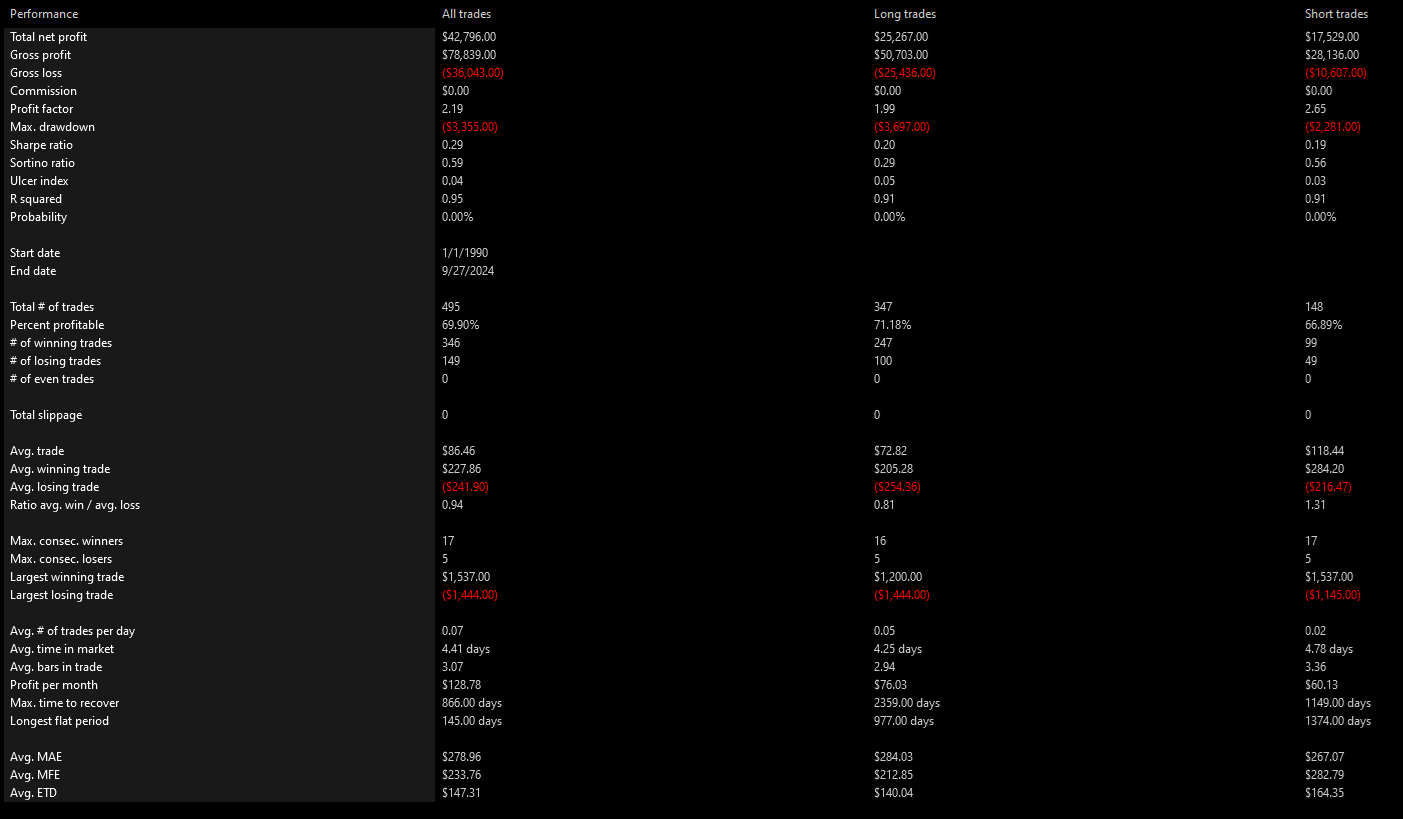
|
|
|
|
### QQQ
|
|
|
|
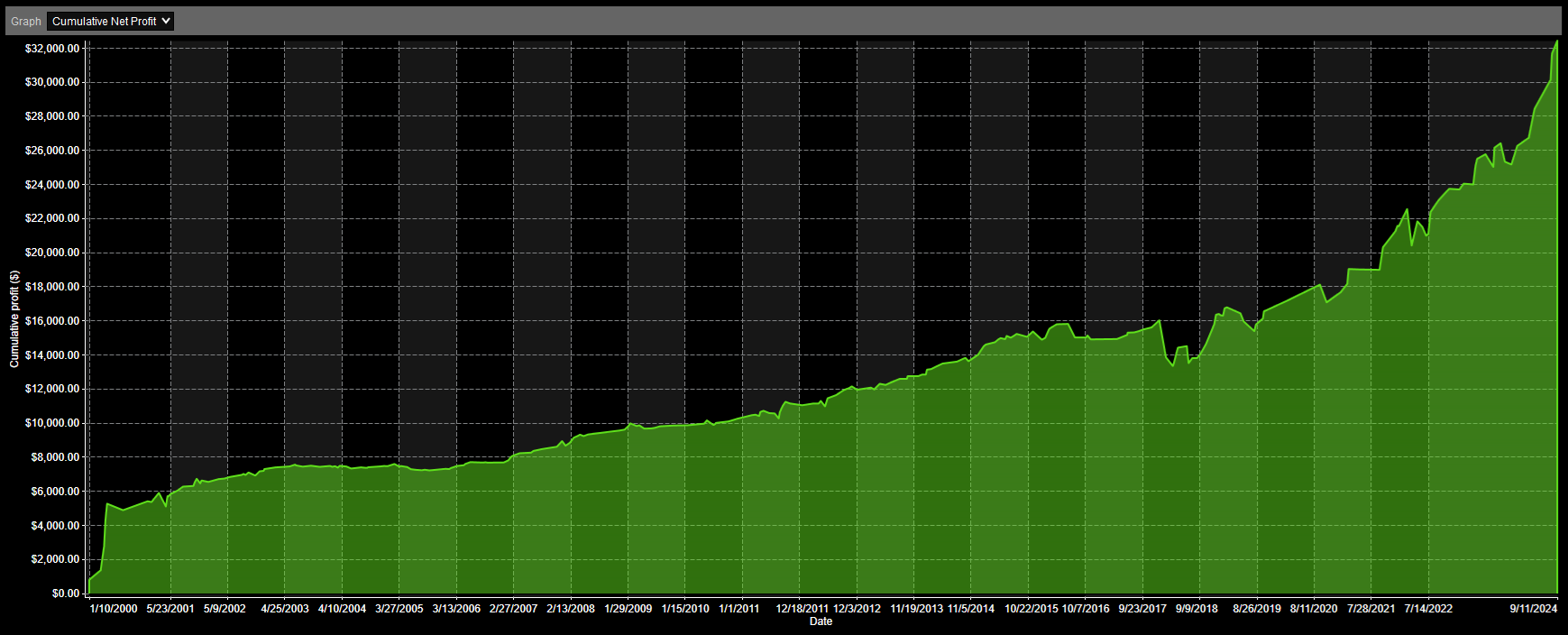
|
|
|
|
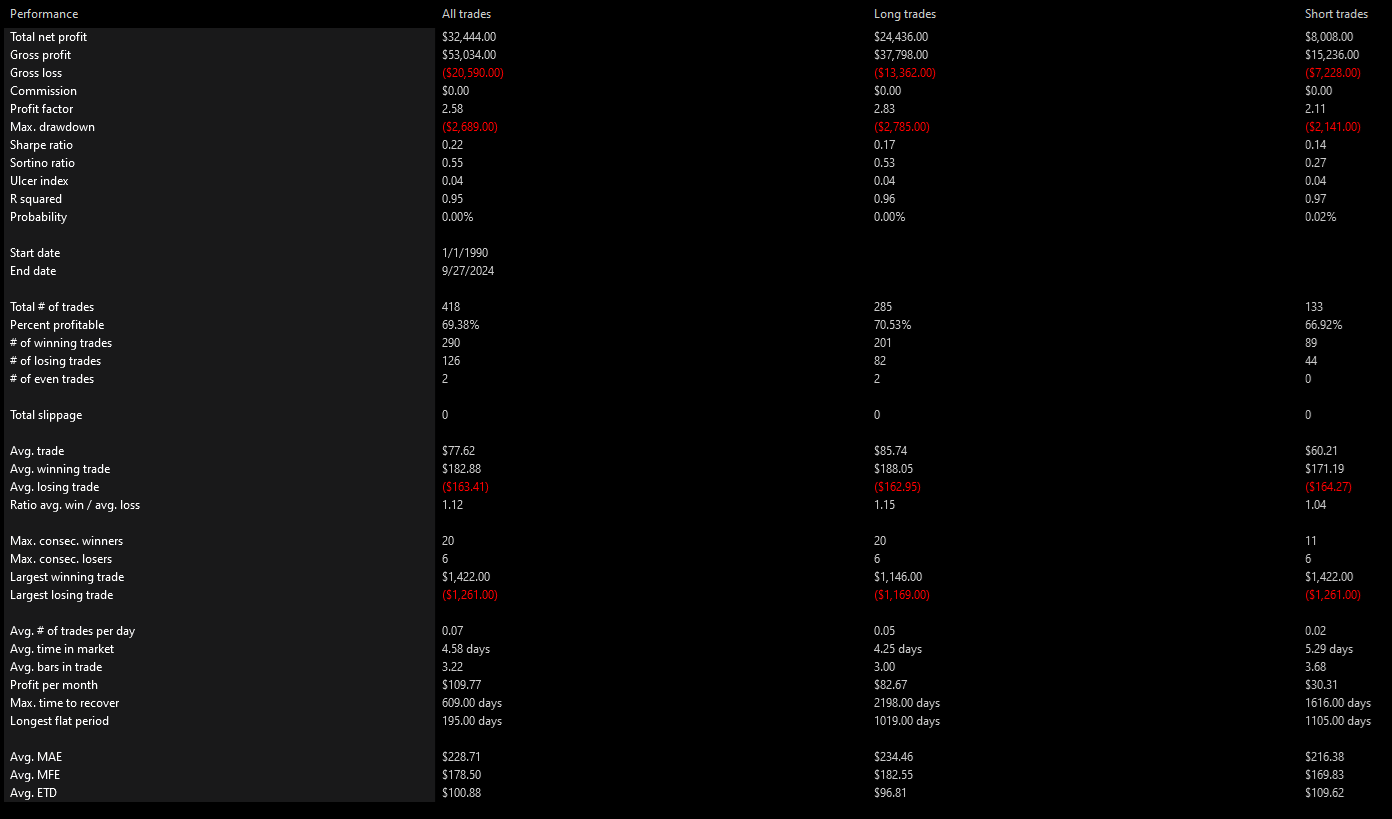
|
|
|
|
### DIA
|
|
|
|
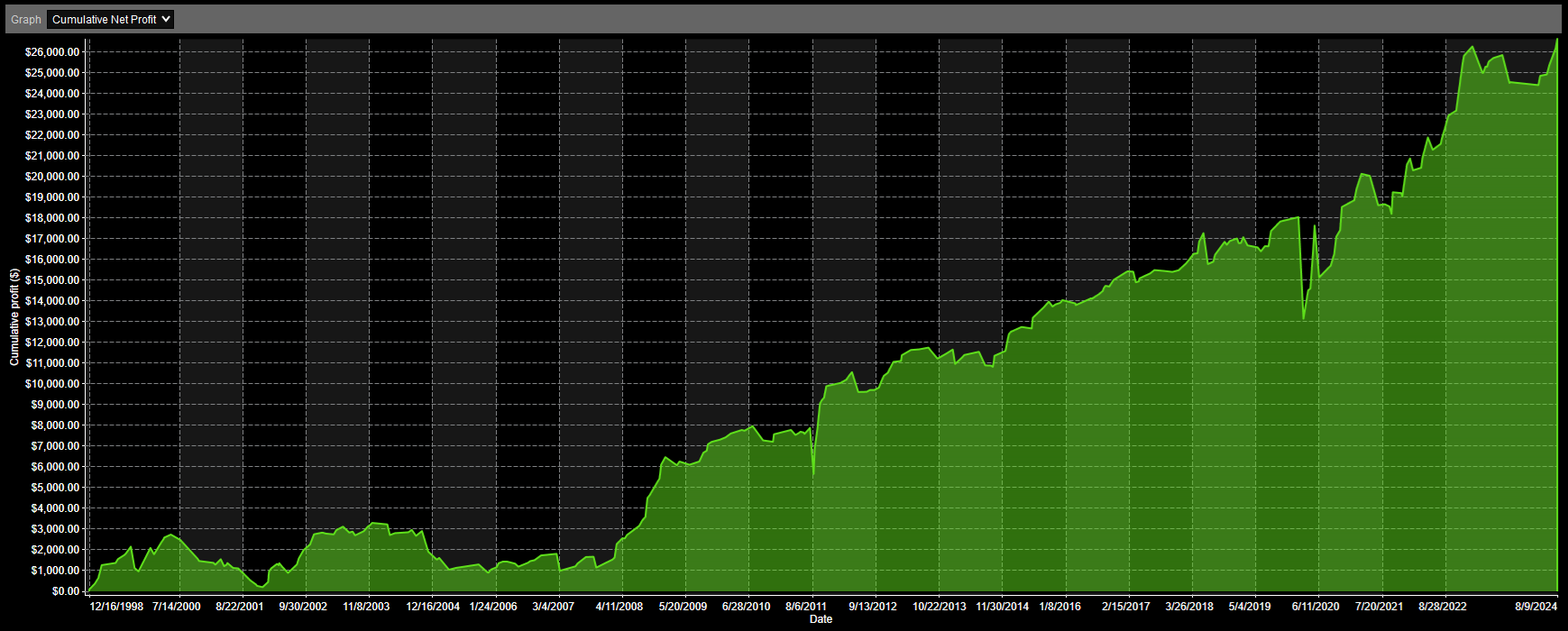
|
|
|
|
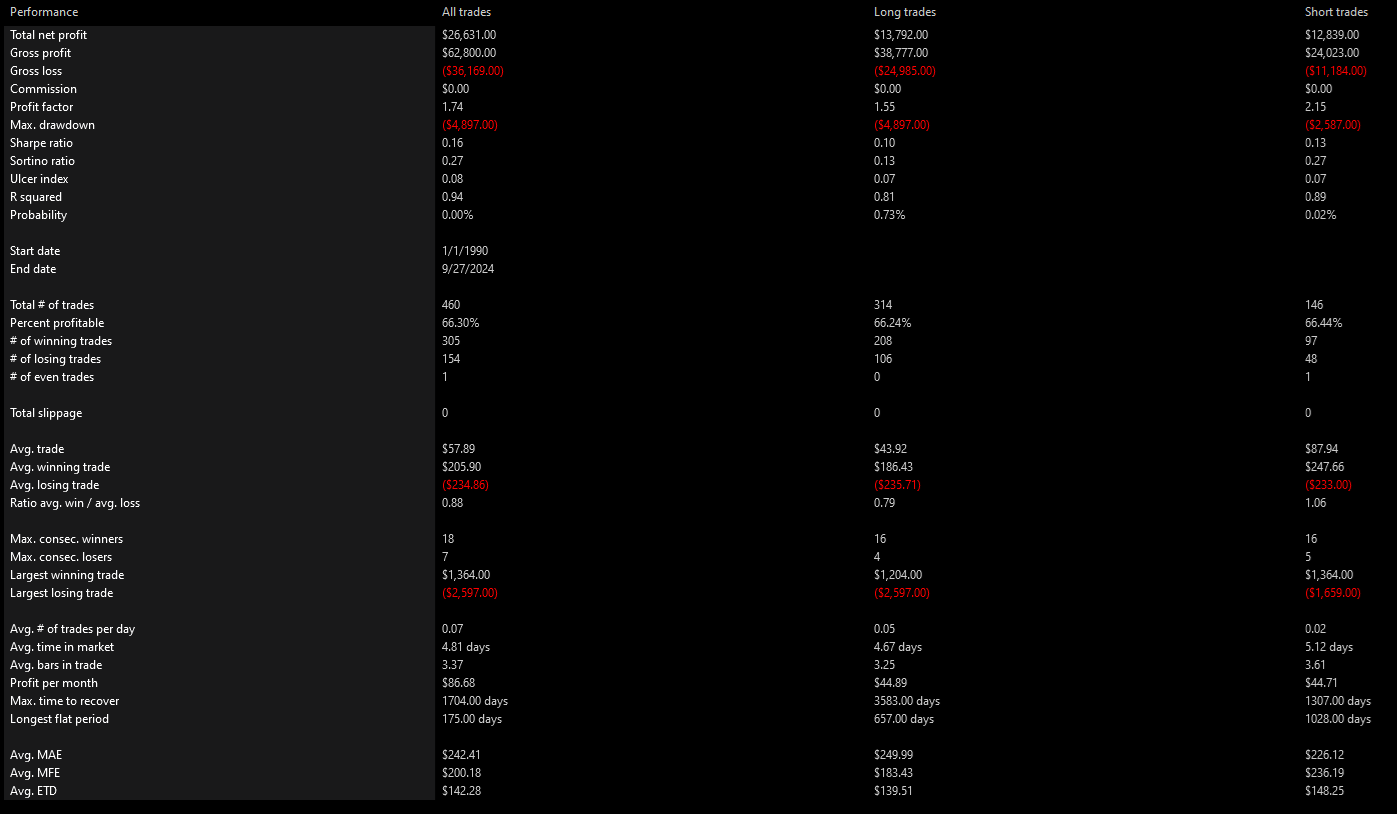
|
|
|
|
### IWM
|
|
|
|
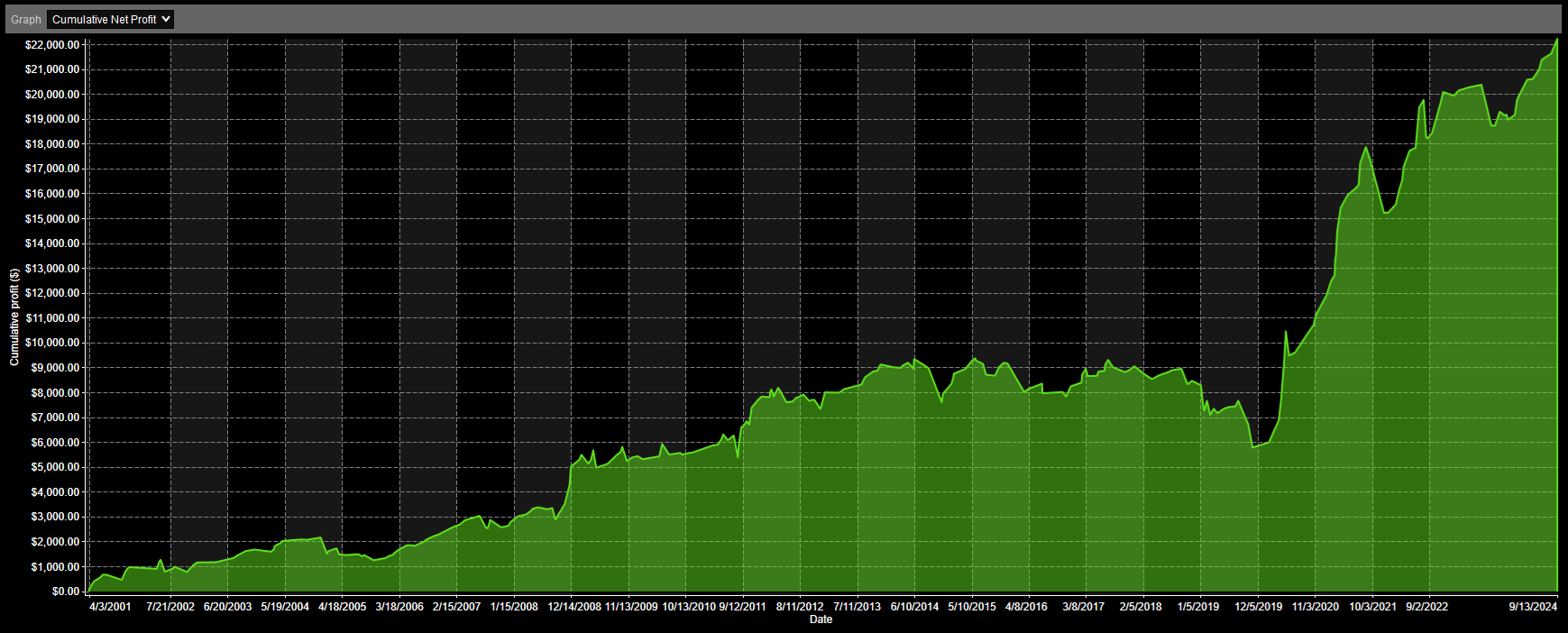
|
|
|
|
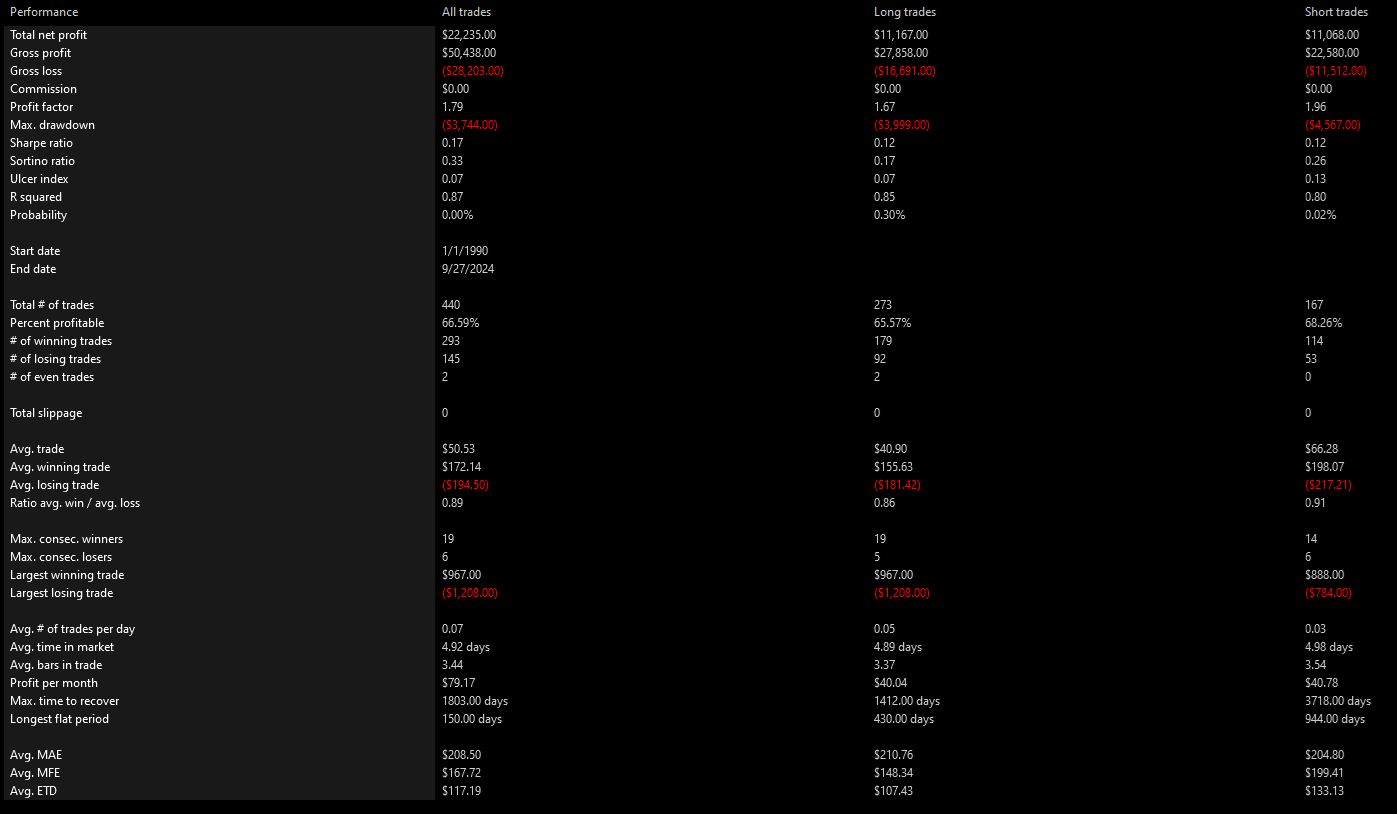
|
|
|
|
### Sector ETFs
|
|
|
|
This backtest is an aggregation of the results of the following sector ETFs:
|
|
|
|
XLB, XLC, XLE, XLF, XLI, XLK, XLP, XLU, XLV, XLY
|
|
|
|
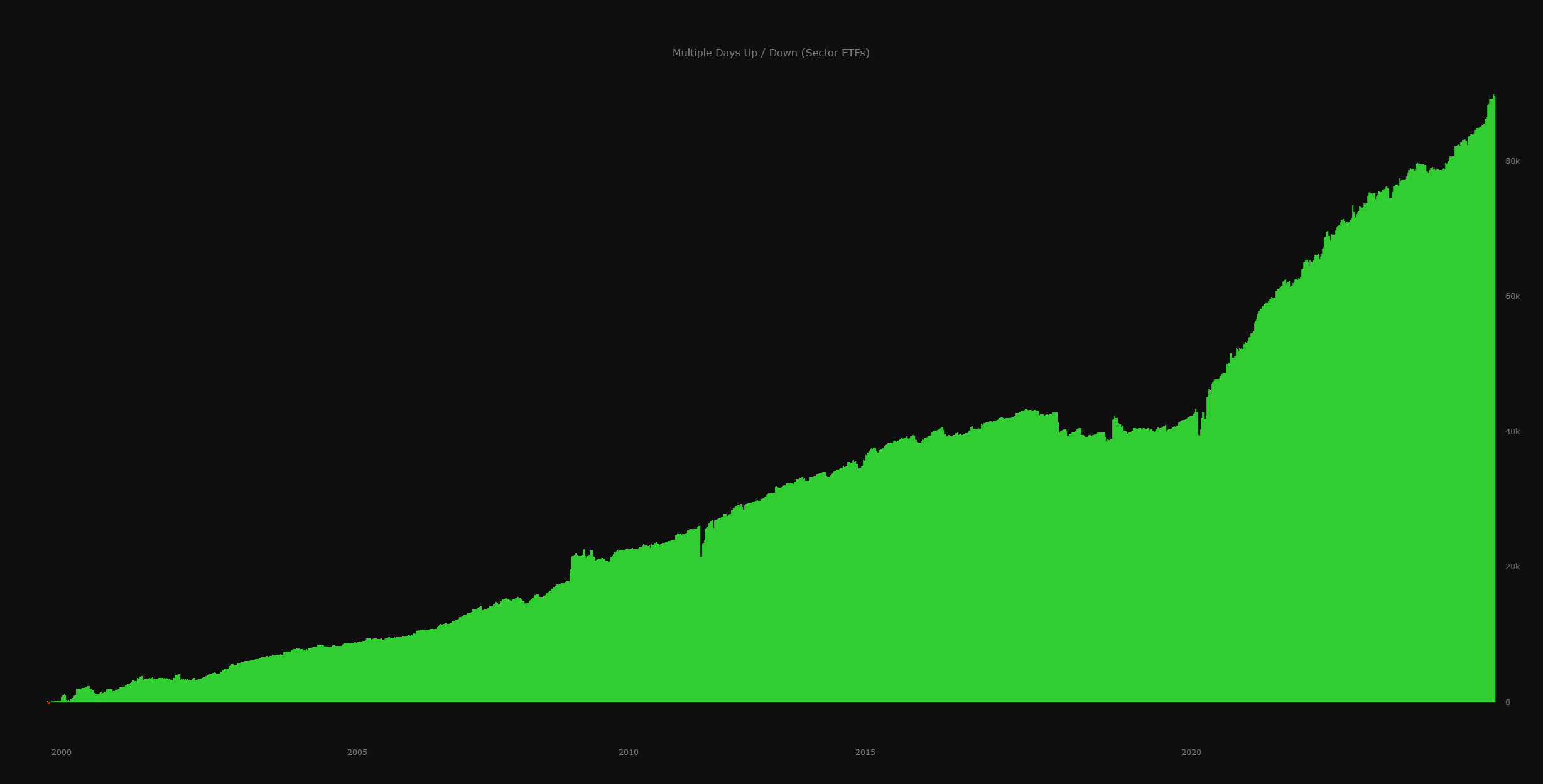
|
|
|
|
--- |